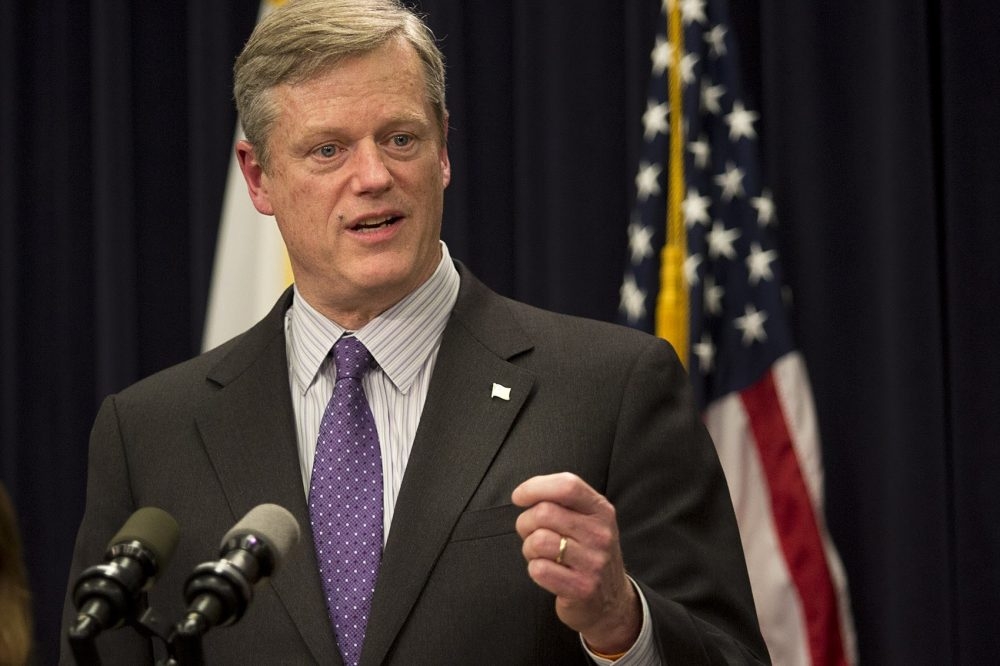As questions loom from Washington over how possible changes or a repeal of the Affordable Care Act would affect Massachusetts, Gov. Charlie Baker has put forth his budget proposal for the upcoming fiscal year.
It’s the first time the state budget would exceed $40 billion. The governor’s plan clocks in at $40.5 billion, that’s 4.3 percent more than the current budget. The governor says his budget keeps the state on a path of fiscal responsibility.
“This year’s budget proposal continues many of the important investments and includes new proposals to foster healthy economic opportunities and support education and core services to our communities,” he said Wednesday.
The governor says his budget proposal nearly eliminates the $1.2 billion structural deficit he inherited when he took office, and keeps spending in line with recurring revenue. He’s calling for putting $98 million in the state’s rainy day fund, and reducing the reliance on one-time revenues.
The proposal contains no new taxes, with the exception of expanding the state’s hotel tax to some properties that are rented out via services like Airbnb, as well as stepping up efforts to collect sales tax on internet purchases.
The big uncertainty this budget season is what will happen in Washington with efforts to change or repeal the Affordable Care Act, and what sort of impact that will have here in Massachusetts. For now, the governor is proposing two controversial ways to control costs. The first would cap the prices paid to more expensive doctors and hospitals in the state. The second would revive a provision of Massachusetts’ original health care law, and charge employers who stop covering their employees.
“We are seeking to bring back some of the provisions of the original Massachusetts law to ensure that taxpayers don’t have to pay to cover the hundreds of thousands of full-time workers who have moved onto taxpayer funded MassHealth over the course of the past two years,” he said.
While applauding the move to restore money to the rainy day fund and the focus on health care costs, Eileen McAnneny of the Massachusetts Taxpayers Foundation is not so sure about charging businesses who don’t cover their workers.
“I think the governor rightfully pointed out the differences between the Massachusetts health care reform law and the ACA,” she said. “But I’m not sure that assessment is the appropriate move, but I look forward to having that debate and that dialogue.”
Budget crunchers in the House Ways and Means Committee will now review the governor’s proposal before developing their own plan in the spring. A compromise budget will need to be reached between the House, the Senate and the governor by July 1, 2017 when the new fiscal year begins.
